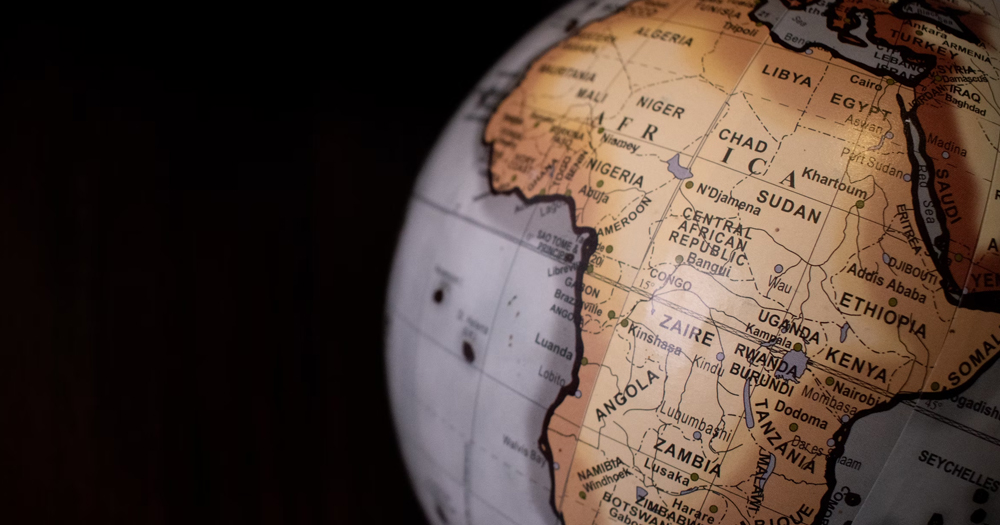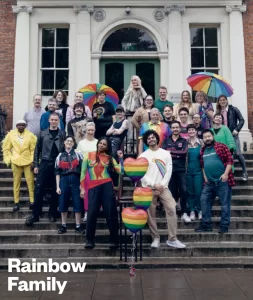In an in-depth report, Daniel Anthony unveils the complexities of homophobia, pre-colonial attitudes towards same-sex relationships and drivers of stigma in contemporary societies in Africa.
The myth that homosexuality is un-African, a “Western import” and “sexually perverse behaviour”, as they call it, is a bare-faced lie, a deceptive outcome of colonialism used to promote and push homophobia in the entire continent. Homophobia in Africa, like in other parts of the world, is a convoluted issue shaped by various cultural, social, and historical factors.
Despite the fact that homosexuality historically existed in many African societies, contemporary attitudes towards homosexuality and LGBTQ+ individuals are often hostile and bigoted. Bandy Kiki, a director (trustee) of Living Free UK, explained the contributing factors of homophobia in Africa as colonial legacy, political exploitation, and religious Influence.
“One of the biggest misconceptions about LGBTQ+ issues is that people don’t know it’s ‘homophobia’ that is un-African. Colonial-era laws criminalised homosexuality, and these laws still exist in some African countries. The legacy of colonialism has contributed to the criminalisation of same-sex relationships and perpetuated stigma.”
Homophobia in Africa has a labyrinthine history. With over 54 countries on the continent, 31 of them have antigay bills criminalising same-sex relationships, each with its unique history and experiences regarding LGBTQ+ issues. Yoweri Museveni, Uganda’s President, signed into law a draconian and one of the world’s toughest anti-LGBTQ+ bills on May 29, 2023. In its genocidal fantasies, the Uganda Anti-Homosexuality Act 2023 allows executions for certain types of consensual same-sex activities and has set a dangerous precedent for other countries adopting similar policies and intensifying existing homophobic sentiments.
Ghana became the latest country to join in the string of setbacks for LGBTQ+ rights after the country’s parliament unanimously passed an anti-LGBTQ+ bill on February 28 after months of debates, targeting and intensifying a crackdown on the rights of minority groups and those advocating for the rights of LGBTQ+ people.
Africa is a diverse continent of over a billion people with different cultural, social, and political landscapes, so it is challenging to provide an in-depth account of homophobia in a simple narrative. However, we can explore some key historical aspects, influences, and contemporary drivers of homophobia.
Firstly, the pre-colonial attitudes toward same-sex relationships: Prior to the arrival of European colonial powers, many African societies were fluid and exhibited a range of attitudes towards sexuality and gender identity. These varied widely across different ethnic groups and regions. In some societies, same-sex relationships and non-binary gender identities were accepted or even celebrated as part of cultural and spiritual traditions.
In the kingdom of Buganda, which is present-day Uganda, young men who served in royal courts provided sexual services to King Mwanga II, the elites and visitors. The Teso people of Uganda also had categories of men who dressed up as women. The mudoko dako were effeminate males among the Langi people of northern Uganda who were treated as women and even married men without social sanctions.
In Egypt, homosexual and homo social relations were considered natural occurrences which even extend to marriage. The Siwa Oasis practiced homosexual pederastic relationships, dowries were paid for adolescent boys and the Siwan men were fiercely devoted to their same-sex partners. The practice was later outlawed in the 1940’s after the war ended and Egyptian authorities and Siwan elders suppressed the historical and anthropological records.
The Zande warriors found in Congo and Sudan were involved in homosexual relations. The warriors were said to marry younger men who performed the duties of a wife until they became warriors themselves and the cycle continued.
The ‘Ashtime’ is a gender among the Maale People in Kenya, who are assigned male at birth but behave like women and have sex with men. While the Dagaaba people believe that homosexuals have the power to commune with the spirits and that gender is based on the energy of a person rather than that of anatomy.
The arrival of European colonial powers in the 19th and 20th centuries brought a new set of attitudes. European powers viewed homosexuality as a sin or a crime, and this attitude was imposed on colonised African societies through colonial laws and religious institutions.
Many European nations introduced laws criminalising homosexuality and other forms of non-heteronormative behaviour. Colonial legal frameworks, such as the Offences Against the Person Act 1861, Prohibition Against ‘Cross Dressing’ 1893, and The Queensland Criminal Code 1901 created a legacy of discrimination against LGBTQ+ individuals. This was when fluid attitudes towards sexuality and gender identity in Africa were altered. Homophobia wasn’t only imprinted into laws, but also in the minds of many Africanswhich has persisted to this day.
Following the independence movements of the mid20th century, African countries gained self-governance but many of the colonial-era laws remained intact. As a result, many African societies began to adopt more rigid attitudes towards sexuality and gender identity, this perpetuated a legal and social environment hostile to the LGBTQ+ community.
Acting as a neo-imperial force in different countries, religion being the major influence on art, culture, and philosophy in the entire continent is the pre-eminent and greatest influence on attitudes towards homosexuality. The conservative interpretations of predominant religions (Islam and Christianity) contribute to the stigmatisation of LGBTQ+ individuals. These two religions whose doctrines, beliefs, and teachings virtually contradict each other wilfully collaborate in their disdain for homosexuality which is rooted in the teachings of their holy books, the Bible and Quran.
For decades, Christians have been fanning the flames of homophobia while backing it up with the infamous biblical ‘Sodom and Gomorrah’ because the primary sin of Sodom is seen as homosexuality, and prejudice against LGBTQ+ individuals in the Muslim world has intensified, resulting in Sharia-based punishment with death penalties imposed in Muslim majority countries like Mauritania, some northern states in Nigeria and parts of Somalia.
African societies are also deeply characterised by rigid gender roles and heterosexual norms. The family unit is central and same-sex relationships are believed to be a threat to traditional family values and gender dynamics.
Many African leaders use anti-LGBTQ+ rhetoric as a political tool to consolidate power, divert attention from other issues, or appeal to conservative cultural and religious sentiments. The Uganda Anti-Homosexuality Act triggered a domino effect across African countries like Kenya and Ghana proposing anti-gay legislation.
Bandy Kiki describes the increasing anti-LGBTQ+ laws and rhetoric as a form of politicisation: “During election cycles in Africa, we’ve witnessed politicians exploit anti-LGBTQ+ sentiments to bolster their popularity. What’s equally concerning is that these same politicians, often lacking substantive solutions for their constituents, resort to scapegoating the LGBTQ+ community during periods of economic turmoil to divert attention from the pressing issues afflicting their nations.”
All these obstacles create a very harrowing existence for LGBTQ+ people. Although Kiki tells me that “The experience of LGBTQ+ individuals in Africa varies widely. “Factors such as social class, economic status, and resources can intersect with other aspects of an individual’s identity. LGBTQ+ Africans with higher social and economic status may possess greater financial resources to support themselves and may even encounter less rejection from their families. A friend once told me that, despite her family’s disagreement with her sexuality, they cannot disown her because she financially supports them. Nonetheless, many LGBTQ+ individuals in Africa face pervasive social stigma and discrimination. Most of them live in extreme poverty, unable to secure employment due to their sexuality.”
US evangelicals are also playing a major role in exporting homophobia. American evangelical Scott Lively was part of anti-gay events that led to Uganda’s 2009 “Kill the Gays” bill after he landed in Uganda to warn of the “gay agenda”. This happened right after a series of culture-war defeats for the evangelicals in the US.
Many US states were recognising same-sex marriage, and opinion polls were showing fewer and fewer Americans objected, so they went to Africa spreading homophobia and influencing lawmakers. Lively discussed legislation that specifically targeted the LGBTQ+ community with Ugandan politicians, asking them to drum up public support for it by “emphasising the issue of the homosexual recruitment of children,” which he advised would be an effective strategy. Museveni had initially called it a “Fascist” bill and stated he had no intentions of signing it but later changed his mind under domestic pressure.
Kasha Jacqueline Nabagesera, a Ugandan LGBTQ+ rights activist said in an interview with CNN that a small group of American evangelicals came to Uganda to speak out against homosexuality that took the persecution of the LGBTQ+ community to another level.
“They went to parliament and advised them to change the law, went to universities and told them that LGBTQ+ people have a lot of money and are recruiting them into homosexuality so they should be careful. Then went to parents and told them the homosexuals are recruiting their children,” she said.
It seems as the movement lost its grip in the West, it started to reach for relevance elsewhere. US evangelicals and missionaries own large portions of land and have established hospitals, churches, schools, and media organisations all over the continent, which are run on the values of the Christian faith. These institutions are constantly being used to propagate and ingrain homophobia into African societies. Sectors such as lawmaking, media coverage, education, and healthcare are being influenced by US evangelicals who make sure that LGBTQ+ individuals are maliciously targeted and denied access to services.
Lively was not acting alone: in a recent investigation, a British publication, openDemocracy, found that the US Christian right has spent at least $280m abroad fuelling campaigns against the rights of women and LGBTQ+ people across five continents between 2008 and 2019, and $20m of this was spent in Africa at the same timeframe.
Lively’s 2009 Uganda anti-gay conference changed the atmosphere for LGBTQ+ communities across the continent. Although the 2014 draconian bill was struck down by the Supreme Court on procedural grounds, it triggered a domino effect and was the sole reason for Nigeria’s 2014 Same-Sex Marriage Prohibition Act which punishes homosexuality with a 14-year imprisonment sentence.
Uganda recently passed a new law with harsher penalties but this time it’s fully backed by fundamentalist US groups like Family Watch International and was upheld by the constitutional court. Now we’re seeing nations like Ghana, Cameroon, Tanzania, and Kenya emulating these laws and introducing anti-LGBTQ+ legislation with the help of US evangelical groups.
Homophobia in Africa being a tirade of politics, religion, and anti-neocolonialism was exacerbated by the HIV/AIDS crisis, which not only perpetuated a permanent stigma on our communities but aided in reforming anti-gay laws into targeted “Aggravated Homosexuality” political bills.
So what is the future for LGBTQ+ rights? It’s important to note that over the years, LGBTQ+ communities across Africa have made progress, with multiple African countries like Botswana, Mozambique, Angola, Cape Verde, Lesotho, and Seychelles decriminalising same-sex relationships. Although Christianity in Western countries appears to have shifted ground to accommodate LGBTQ+ rights, that progress is yet to happen in Africa. Given this circumstance, the unfortunate truth is that religion will continue to be a major impediment in ensuring equal rights.
This story originally appeared in GCN’s June 2024 issue 384. Read the full issue here.
© 2024 GCN (Gay Community News). All rights reserved.
This article was published in the print edition Issue No. 384 (June 1, 2024). Click here to read it now.
Support GCN
GCN is a free, vital resource for Ireland’s LGBTQ+ community since 1988.
GCN is a trading name of National LGBT Federation CLG, a registered charity - Charity Number: 20034580.
GCN relies on the generous support of the community and allies to sustain the crucial work that we do. Producing GCN is costly, and, in an industry which has been hugely impacted by rising costs, we need your support to help sustain and grow this vital resource.
Supporting GCN for as little as €1.99 per month will help us continue our work as Ireland’s free, independent LGBTQ+ media.

